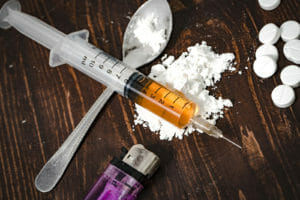Key takeaways:
- Self-care is essential for early sobriety and maintaining it as a habit.
- Prepare for challenging moments of weakness and avoid substituting one addiction for another.
- Stay away from alcohol abuse and understand the signs of addiction.
- Identify triggers and find healthier alternatives to cope with cravings.
- Find a balance in every aspect of life to support sobriety.
- Be aware of acute withdrawal symptoms and seek help if needed.
- Watch for warning signs of relapse and address them promptly.
- Avoid triggers beyond obvious items or people associated with addiction.
- Be mindful of social pressures and surround yourself with understanding and supportive individuals during recovery.
When it comes to how to stay sober, many people think that somehow other people have it easier, and they don’t feel overwhelmed so easily when presented with the opportunity to engage with the substance. Or perhaps the relapse was because of a bad day, anxiety, depression, or lack of sleep, or just because of a day spent unwisely.
There have been numerous reported cases where people found a healthy way of living with rehab, as they found their own path thanks to the support of good friends and social workers. However, some of these people struggled with staying sober, and when their feelings got the better of them – they relapsed.
The key to early sobriety, and maintaining it is to practice self-care as a treatment in the first few weeks and then constantly practice it for it to become a habit. It helps to have a clearer differentiation between abstinence and sobriety which can sharpen our understanding of recovery by helping us to recognize better the processes taking place during long-term recovery. First, start with a few weeks of sobriety, and use it to understand different types of abuses, triggers, and remedies, and find your balance.
What to expect in the first few weeks of sobriety?
Support groups are helpful to give you a push forward in the right direction, but the rest is up to you. If you are new to practicing staying sober and have recently gotten out of drug abuse, alcohol addiction, heavy drinking habits, or some sort of drug addiction – the journey ahead is going to be difficult.
But you have to prepare for it, in the first month of sobriety, you have to endure and overcome post-acute withdrawal symptoms for a better tomorrow. People with co-occurring disorders who achieve sobriety use a variety of self-management strategies to prevent relapse—seeking support, activities, and a healthy mindset.
One day at a time, you have to make the decision to stay away from your drinking buddies, drugs, or foods that aren’t good for you. Early sobriety requires a great deal of commitment and is an essential part of fighting off your addiction, whatever it might be.
1. Stay Caution of Moments of Weakness
Expect that there would be times when you might question if it was worth it to quit drinking if it was really eating disorders or bad habits, or even if your drug abuse was really that bad or not. Fight it and realize you need to give up this idea, and put it in the past to truly be healthy.
2. Understand That Addictions Can be Different
You might have an addiction, and try seeking solace in another. Most people recovering are inclined to feel lost without the drug of choice, they might develop depression, feel a lack of balance, and experience anxiety. it is best to not substitute one addiction for another, such as moving past an eating disorder and towards alcoholism, etc.
Staying Away From Alcohol Abuse
Understand that you need to embrace the sober life, which is why you need to take some measures today for a better tomorrow. One of the measures includes staying away from alcohol abuse, and stopping drinking when you have had enough. If you are an alcoholic or fear you might become one, abstaining from it is better than eventually having to go to rehab.
It is best to not use alcohol indulgence as an excuse for a bad feeling, or circumstances. Have a sense of what is in your control, and what isn’t – don’t focus on the past, rather, shift your energy towards what you can do to better the situation today.
Fight the Alcohol Drinking Addiction
Too much alcohol and too often can do more harm than good and can cause multiple concerning symptoms as well. Like slurred speech, slow reflexes, difficulty concentrating, gaps in memory, poor decision-making, and more.
It is best to deal with the process of recovering from an alcohol addiction rather than relying on evasive methods. Understanding the process can be a fruitful solution and a better alternative than losing sleep, good friends, and trying to embrace your unhealthy addictions.
Notice the Signs
Before you call your drinking buddies for a night out, check whether or not is it rational to go out drinking. notice important signs like:
- You can’t stop drinking alcohol once you start.
- You do realize that your alcohol consumption patterns aren’t healthy
- Your work and personal life start suffering.
- People frequently tell you that you look for opportunities to drink alcohol.
- You find drinking alcohol an essential part of your existence.
Understand that the signs could follow a similar pattern if you are newly sober and don’t know where to draw the line.
Staying Away From Substance Abuse
More often than not, drug addiction can take more than one form. One of which is substance abuse, and it isn’t something you should take lightly. In early sobriety, your urges to indulge in the substance would be sky-high, and you’d be left fending for yourself. However, there are many steps you can take to avoid relapsing and stay on the right track.
The first and foremost step you need to take is to identify where your addiction lies and then consciously make the decision to not frequently use it. Addiction is a disease, and it can cause harm in more than one way.
1. If Heroin is Your Trigger
Heroin is an illegal drug and is famous for giving people a rush of feel-good feelings at the start, however, when the effect wears off, your body starts to slow down. Many rehabs treat snow, or dope, i.e., heroin as a grave illness and it is not without reason. its consumption ruins your brain, slows down your thought process, and causes you to feel nauseated, nervous, and get chills.

Remember that heroin isn’t something you can take in moderation, and you should avoid coming into contact with it at all times. The only method to staying sober is reinforcing it daily and never participating in activities that could promote it.
If Cocaine & Marijuana are Your Triggers
Cocaine and marijuana are different types of drugs and cause a unique sensation that you might crave at times of discomfort or distress. Cocaine speeds up your body, and you start moving, talking, and thinking at a fast speed. This then translates into feeling full of energy, and you might feel like getting that extra boost when your support group isn’t around.

Why Substitute is Your Best Friend to Avoid a Cocaine Relapse
You might feel the urge to relapse when you want to feel intense happiness, but it is important to remember the good with the bad to not lose your early sobriety. Cocaine causes one to be irritable, and paranoid, which can cause you to shun family members, and develop self-esteem issues. A decrease in appetite might also cause eating disorders further down the line.
Exercise can be your New Addiction
It is important to substitute the feeling with something else, try healthy activities like any exercise to get your energy levels up.
Spend time away from Intrusive thoughts
Invest in Spending time with friends, and avoid ruining your sobriety by thinking about the drug. Connect with other sober people from rehab, family, and people in your social circle.
Have your Own Support Group
Reach out to old friends and share your troubles with substance use and get some support. Treat each day as a form of treatment, for all the emotions, and the lost time you had to go through during that drug use.
Appreciate The Good That Came Your Way Because of a Sober Life
Take some time off for yourself to appreciate your sober self, and reflect on how any drug is only a temporary avoidance mechanism. Seek out a higher power, and celebrate each day of sobriety as a success.
Why Going Cold Turkey on Marijuana is The Best Gift You Can Give Yourself
Sobriety can be challenging, but it is the only symptom-free way of living. Drug addiction can be a risk to you, your family, your kids, and the future that awaits you. Many people who got sober reported spending time with members of their support groups to fight addiction withdrawal symptoms and stay sober and there is no reason why you shouldn’t do the same.
Get all signs of the drugs out of your circle and your life
Ask your family to ensure you don’t lose sight of yourself, or connect with treatment providers. Block those friends that took you on a dark path, and willingly make better decisions.
You don’t need related paraphernalia
Avoid the risk of endangering yourself, and get rid of all related items such as bongs, bowls, vapes, pipes, etc. Don’t be in the presence of the items that are known to trigger your relapse.
Strategize against triggers to reinforce sobriety
Create a treatment plan and move forward with help from treatment providers like Lantana to ensure you are taking the right steps toward long-lasting early sobriety. You can also work with Alcoholics Anonymous (AA) and their 12-step program that has been proven to work in maintaining long-term sobriety.
Be your own rehab
Take it one week at a time, any time spent embracing sobriety is all worth your while. Hardwire the concept into your brain, treat it as a personal self-medicated practice, and remember why you quit in the first place.
Early Sobriety Requires Finding Your Balance
People in early sobriety might process their early recovery differently based on their experience, drug abuse, alcohol consumption patterns, etc. But one thing that’s constant irrespective is finding a balance. You might not see the importance immediately, but addictions cause you to behave differently and get used to the chaos and drama in your life.
This is why creating a self-guideline for what’s important and what’s not can be helpful in the long term. Find out how you define the new normal, and create a lifestyle that encourages a better way of living. Sobriety demands that you find a balance in every aspect of your life, from religion, public dealing, and family matters, to career decisions.
Notice the Acute Withdrawal symptoms
For most people, drug abuse isn’t a phase they were going through, instead, it is easily the way of living for them. After recovery, they suffer from long-lasting effects on their mental health. While “complicated alcohol withdrawal presents with hallucinations, seizures or delirium tremens” (Clinical management of alcohol withdrawal: A systematic review, Kattimani & Bharadwaj, 2013), some common acute symptoms, which can include depression, sleeplessness, depression, and more.
Understand that these symptoms are just signs of your body overcoming the substance or alcohol addiction, and it is a normal phase that you must go through. Luckily, all the symptoms can go away after a couple of weeks, but in some cases, they might take months. It is best to stay focused on living a sober life.
Look For Warning Signs
Your biggest threat now is your mental and emotional state. The most common warning sign that causes relapse is the state you are in – when you can’t differentiate right from wrong and make incorrect decisions. But that doesn’t happen instantly, there are multiple signs that indicate that you are on the verge of a relapse.
- You start following the pattern that you had before and find it to be more comforting and to your liking. A change in attitude might be the next thing you observe, suddenly, staying sober would lose its charm and you’d want to go back.
- An increase in stress might also become a major contributing factor, it could be because of the little thing building up and your body not adjusting to the real world. The real issue is not seeking help when small issues tend to become a problem.
- Most importantly, you might sink into denial as you get ahead of yourself. Sobriety is a life-long treatment, one which you must practice day to day, then week on week, till finally, it becomes a routine. Don’t start your drug-free journey with us on false hopes, work each day to feel better.
Find Relapse Triggers Beyond The Obvious
It is common to create a connection with things, people, and items you used during your addiction. You might have a hand-me-down flask or pipe that signifies historical importance. Or you might associate drinking and partying together with a friend or an ex-lover. All of these items and people pose a threat to your sobriety, even if you think they don’t.
It is easily possible that you find comfort in them, and would turn to them in a moment of weakness. Realize that these are all proper triggers, and seek the help of a professional like Lantana to make sure they are no longer a motivator for you to turn to your addiction. And Lantana for Men and Lantana for Women is available for safe living quarters.
Ideally, it is best practice to avoid those things intentionally. You can decide to cut some people out of your life and ask your peers or support group people to hide triggering items away from you till you are physically and mentally ready to be reintroduced to them.
Avoid Social Pressures
Not all social gatherings are great, and not all friends mean well when you are recovering. Most of the time, people don’t know how to act in front of someone recovering from an addiction, and they keep on discussing it to make matters worse.
If you are at the beginning of your sobriety journey, it is your responsibility to make wise decisions. Pick a group of people that understand your situation and won’t pressure you into conforming to your old ways.
Ideally, it is best to tell your social group about possible triggers and request them to act with caution. You can also have a comfort buddy from your support group accompany you in gatherings so it is easier for you to say no to alcohol and drugs that might be available at the party.

Bottom Line
Alcohol abuse, eating disorders, drug use, substance use and more are far from the standard of living needed to live a quality life. To return to a fulfilling lifestyle, you must embrace early sobriety as effectively as you can and put key actions into practice.
Start with the right mindset and expect there to be different challenges to living a sober lifestyle. Don’t try to do it all alone, instead, be a part of the community or work with Lantana until you are confident in yourself to avoid a relapse. Be in charge of your actions, and don’t let any form of addiction take that control away from you. Know that the difficulties coming your way today lead to a better tomorrow.








